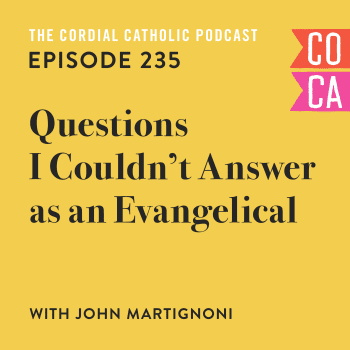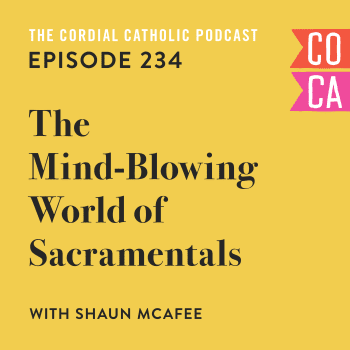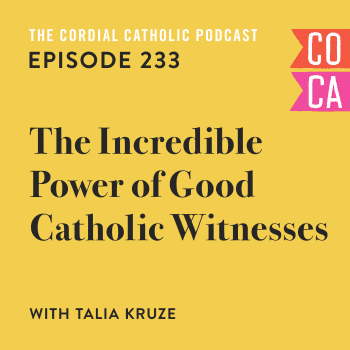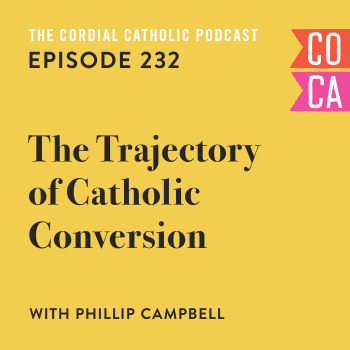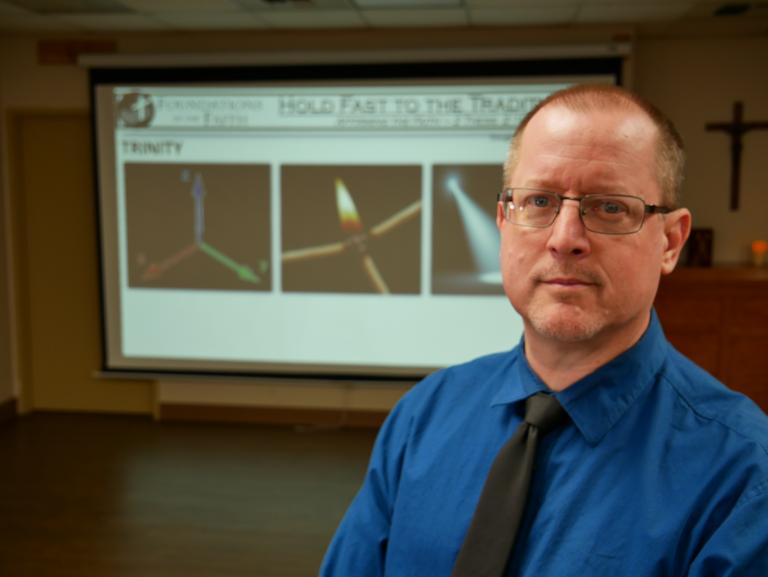
Dr. Douglas Beaumont was, “an Evangelical of Evangelicals,” he says.
As an adult convert, Dr. Beaumont was fervent in his Evangelical Christian faith. He loved discussing the Bible, evangelizing, and wanted to to it full-time. When he enrolled at one of the top Evangelical schools in North American, Southern Evangelical Seminary, he did it intentionally—choosing a school that, he knew, would challenge him to dig deeper in his faith and would train him to evangelize through mentorships with some of the top Evangelical thinkers in the world.
All told, Dr. Beaumont was no slouch.
But studying the Bible in depth led Doug, and his colleagues, to ask questions which couldn’t be readily answered.
Namely, why was the Bible authoritative? And how come so many people understood it in so many different ways?
It was questions like this that led Doug to begin exploring the roots of the biblical canon—how the Bible got put together—and how it’s been used by Christians down through the ages. And it was here that Doug’s Evangelical understanding of the world began to unravel.
Because Doug recognized two things.
The Bible was Collected by the Church
First, that the Bible didn’t fall from the sky completely intact. I’ve had this discussion before. It was part of my own conversion story. And Dr. Beaumont isn’t the first to recognize and grapple with this but he was, indeed, in a very unique position as he did his grappling. He was at one of the top Evangelical school’s in the country. He was amongst some of the brightest lights of Evangelical Christianity and, and he explains, it seemed like no one had the solution.
No one had the solution to how and why Evangelicals can have and use a Bible without recognizing the Church which helped to put it together. In other words, how can we say that the Bible is authoritative in our lives without recognizing that a unique Church—already calling itself Catholic at that point—with a hierarchy of priests and bishops and a Pope, gave their authority to councils which ultimately decided which books belonged in the Bible and which books didn’t.
It was the Church, in its Bishops, that decided which books belonged in what we called the Bible.
And that the Bible itself never actually said it was the sole authority, as Doug was taught to believe as an Evangelical—as Doug was teaching others to believe as an Evangelical seminary professor.
Indeed, as Doug began to question this very notion, he realized that nowhere in the Bible does it actually say this.
A shocking revelation. If the Bible is the sole source of authority, why doesn’t it say that in the Bible?
It was self-contradictory.
How do We Interpret our Bibles?
Second, Dr. Beaumont recognized a problem in that fact that there was so much widespread disagreement amongst Evangelical Christians.
If the Bible was supposed to be how we determined our faith, why couldn’t we agree on what it meant?
Even after “heavy duty theology,” says Dr. Beaumont, we still can’t agree on key issues like baptism, salvation, gender and sexuality issues, not to mention questions about how we ought to worship God, structure our Church hierarchy, and what it means to be a Christian.
It was the last point, especially, that Doug was challenged by.
Working under the late Dr. Norman Geisler, Doug understood that what ultimately bound Protestant Christians together were the “essentials.” What Evangelical Christians all believed; the core of the faith. This helped to explain why there could be so many Christian denominations but still, ultimately, a kind of invisible unity.
But was Dr. Beaumont dug deeper into this question he recognized that even Dr. Geisler himself, in his attempts to define the “essentials” of Christian belief, he came up with several different, contradictory definitions.
In fact no list of “essentials” was the same.
So if Christians couldn’t agree on what Christianity was—not even on what were the most essential things to believe—how was there to be any agreement at all? Any unity in the faith?
Like many converts before him and like many converts after, what Dr. Beaumont ultimately wrestled with, and came to recognize, is that there couldn’t be unity in Bible-only Christianity. Not unless God left an interpreter of the Bible that we could all rally around.
And, realized Dr. Beaumont, he did. In the Catholic Church, in the infallible teaching office of the bishops and the pope, there was an arbiter to help Christians understand what to believe—and what we didn’t believe. And this, in fact, existed since the beginning of Christianity.
To hear more from Dr. Douglas Beaumont check out my interview with him, this week on the show.
Click here to listen to this interview, or listen below.



